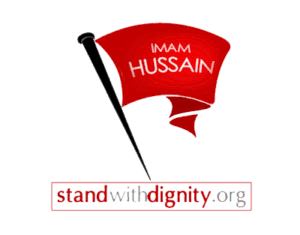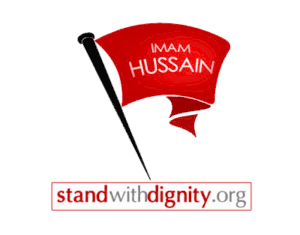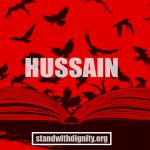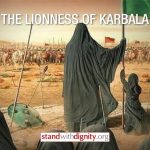By Mohamed Raza Dungersi, Ph.D
Almost every civilized community and culture has its own heroes, for whom, annual memorial gatherings are arranged, so as to remember and honor them. The style of such memorials varies from culture to culture, but the substance remains identical: The highlights of the hero’s life are reenacted, and the community undertakes to keep alive the ideals for which these heroes gave their lives.
For instance, we, here in the States, observe Memorial Day every year in honor of those who have sacrificed their lives in service of America. By the same token, our nation observes Martin Luther King’s Day annually, to remember him and to keep his legacy alive. The main objective behind such a tradition is for us all to undertake to emulate these heroes whenever the need for it arises.
Similarly, we, Muslims, remember our heroes who, at one time or another, gave their lives in defense of humanity in general, and their religion in particular. Although such memorial services are organized on several occasions in the course of the year, the first 10 days of the first month of the Muslim calendar year, called Muharram, are specifically earmarked as days of remembrance, generally for all martyrs of Islam, and particularly, for the martyrs of Karbala.. Then, Muslims, of all ages and genders, with affinity to their Prophet , Muhammad, peace be upon him and his pure progeny, meet regularly to discuss their religious rights and obligations, and to mourn for their heroes, who at various times and places in history, were oppressed and killed in defense of these rights and obligations. One such great Muslim hero whose exemplary life and heroic death have become the cornerstone of such memorials, is Imam Hussain, the beloved grandson of Prophet Muhammad, peace be upon him and his progeny.
Imam Hussain has assumed this predominance among martyrs not only because he was the beloved grandson of the Prophet of Muslims, but also because of his own merits as a man of unique virtue, intense piety and, who cherished a deep sense of commitment to the causes of humanity. He was the champion of the righteous; he therefore symbolizes the efforts and ideals of all heroes. The Indian thinker and poet, Josh Malihabadi, who was dubbed as the Shakespeare of India by Jawaharlal Nehru, the first Prime Minister of India, expresses such sentiments, in one of his Urdu- poems, an extract of which is quoted here under:
History is making a repeated clarion call,
It is the wilderness is of resoluteness, of woe and gall.
By the fortitude of Christ, by Socrates’ valor,
This path is trodden alone, by one man of honor,
That man, his veins tempered by the fire of Badr and Hunain,
He is the valiant being, this sweet man is Hussain.( 1)
Imam Hussain’s greatest test, referred to in the above text by Malihabadi, came in the 57th year of his life in A.D 680. The Caliph of the Muslim Empire at the time, Yazid, in his evil desire to destroy Islam and all the virtues that it stood for, turned to the Imam, demanding from him the oath of allegiance. To endorse Yazid, both as the spiritual and secular leader of all the Muslims and Non-Muslims alike in the Islamic world, was to condemn to death humanity in general, and Islam in particular. For Yazid was evil incarnate; he openly flouted human decency. His lust and lasciviousness knew no bounds; his own mother and daughter were not spared from his carnal desires. In the words of Justice Syed Ameer Ali,Yazid was “As cruel and treacherous as Muawiyah…His depraved nature knew no pity or justice. He killed and tortured for the pleasure he derived from human suffering. Addicted to the grossest of vices, his boon companions were the most abandoned of both sexes.” (2) On the other hand, Imam Hussain incorporated “all the ideals which a true Muslim should possess…bravery and manliness…the dedication to the acknowledgment of God’s Absolute Unity…thus (he was) the model for all generations of Muslims…” (3) Given this fact, if the Imam was to endorse Yezid as the legitimate representative and successor of the Prophet, his material possession would improve tremendously; Yazid, the most powerful ruler of his time, would become his ally. But by so doing, he would be sending out a wrong and deadly message to the community. If a man of his spiritual status found Yazid competent enough to be the representative of Prophet Muhammad, peace be upon him and his progeny, then, what else could be expected of ordinary Muslims, but for them to follow suit and recognize Yazid as the caliph and successor of the Prophet? Henceforth, Yazid would set the standard for the code of conduct for the inhabitants of his Empire. Yazid being what he was, vice would become virtue and virtue would become vice!
Imam Hussain, therefore, decided not to give his fealty to Yazid. For this, the Imam had to pay a very high price. He was driven from his home in Medina to the scorching deserts of Iraq at a place called Karbala. He and his family, together with a small group of his friends numbering 72 in all, were besieged by an army of not less than 30,000 soldiers. The Imam and his followers were mercilessly put to death, having first been denied water and food for three continuous days. This martyrdom took place on the tenth day of the month of Muharram called, Ashura. Not being content with the murder of the Imam and his supporters, the army of Yazid imprisoned Imam Hussain’s surviving sick son, Ali, and the women folk and the children who had accompanied the Imam, and sent them to Damascus, some 700 miles away, on the barren backs of camels. They were set free from humiliating captivity after one year, only when they had become a potential source of danger for Yazid, by exposing his vicious agenda against the family of the Prophet.
The noble sacrifice of Imam Hussain and his friends, however, did not go unnoticed and in vain. The entire world at that time condemned Yazid; and Imam Hussain earned for himself such titles as “Father of Freedom- Seekers” and “Leader of the Martyrs.” He became a driving force for those who refused to bow down to oppression and, thereby, an inexhaustible source of inspiration to those fighting for justice and equity. In this way, Imam Hussain’s martyrdom became a source of strength and endurance for Muslims in times of suffering, persecution and oppression. By enlarge, since then, he has come to stand with every wronged man or woman before oppressive rulers, reproaching wrongdoers and encouraging the oppressed to persist in their struggle for freedom and dignity.( 4) One such personality, to have been inspired by the Imam’s stand in face of a tyrannical regime ,was the famous Indian, non-violence freedom fighter, Mahatma Gandhi. In one of his marches against the British colonial rule in India, he chose 72 people to accompany him. When he was asked for this choice, he said he did so, treading on the footsteps of the 72 martyrs of Karbala. Another instance directly related to the inspiration from the martyrdom of Imam Hussain, is the Iranian Revolution that ended the oppressive and corrupt Pahlavi regime. In nutshell, the enormity of the impact that Imam Hussain’s sacrifice has had on the Muslim community is best depicted by the poetic pen of Josh Malihabadi:
He smashed the pride of power, reducing it to dust,
He tumbled the throne, crushing the ruler and his lust,
He shook the empire, undoing its pomp and pageantry,
He dealt a blow to the kingship and bureaucracy,
Thus, the rule of tyrant, was abased forever,
And the word Yazid was debased forever. (5)
All said and done, Imam Hussain’s martyrdom is singular and one of its own kind and nature. For its impact is universal and ubiquitous, transcending geographic, ethnic, nationalistic and religious boundaries. What makes the Imam’s mission, message and martyrdom unique is that, besides impacting Muslims, they are also reflected in the thinking of non-Muslims of all walks of life, genders, and of different eras. Such personalities include the famous female Indian social advocate Sarojini Naidu, the English novelist cum philosopher, Thomas Carlyle and the colonial historian, E.G. Brown, to mention but a few illustrations. Ironic as it may sound, the timelessness of the legacy of the Imam is confirmed by none other than a renowned Victorian, colonial historian, Edward Gibbon, who says: “In a distant age and clime, the tragic scene of the death of Hussain will awaken the sympathy of the coldest reader. In this history of Islam, especially the life of Imam Hussain , stands unique, unapproached and unapproachable by any one. Without his martyrdom, Islam would have extinguished long ago. He was the saviour of Islam and it was due to his martyrdom that Islam took such a deep root, which it is neither possible nor even imaginable to destroy now. (6)
Footnotes
- From the articles of Hilal Naqvi, appearing in Afkar Ba Ya’ad-Josh under the heading ‘Josh aur Urdu marsia’, pg. 106-112, Karachi, 1982. Reprinted in the ‘Light’ magazine, vol. 27, No. 6, December 1993.
- Saed Amer Ali, “Spirit of Islam”, pg.300, 1981 ed., New Delhi.
- Dr. Mohammed Iqbal, ‘Rumu-zi-Bekhudi’.
- Prof. M. Ayub, ‘The Excellences of the Imam Hussain in Sunni Hadith Traditions’, pg. 67. Papers from Imam Hussain Conference, London, July 1984.
- Josh Malihabadi , ‘The Light’ magazine, Dec. 1993 .
- Edward Gibbon, ‘Decline and Fall of the Roman Empire’, London, 1911, vol. 5,pg. 391-392.











